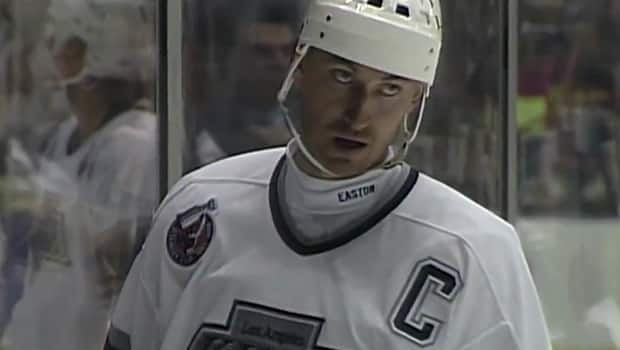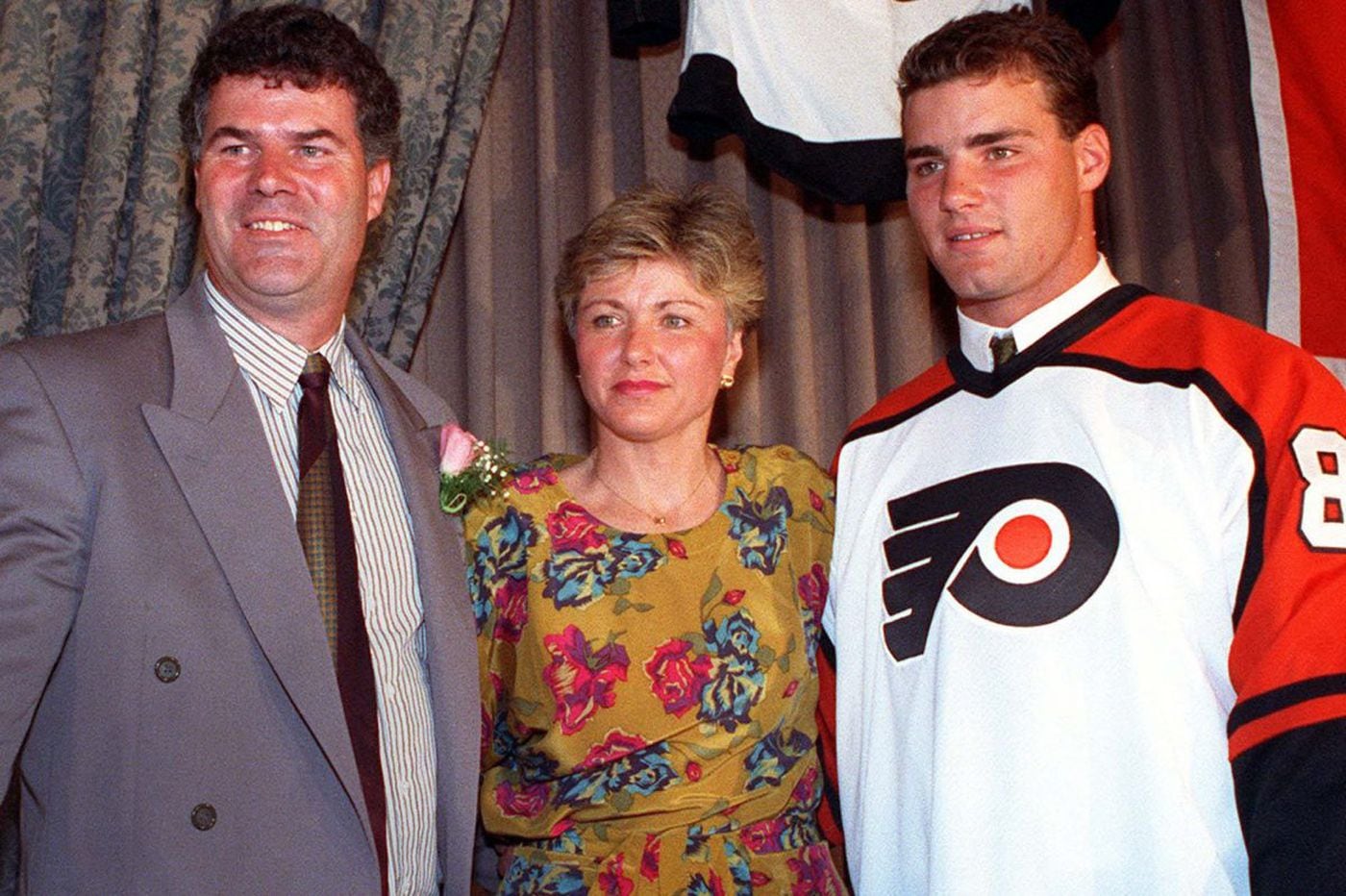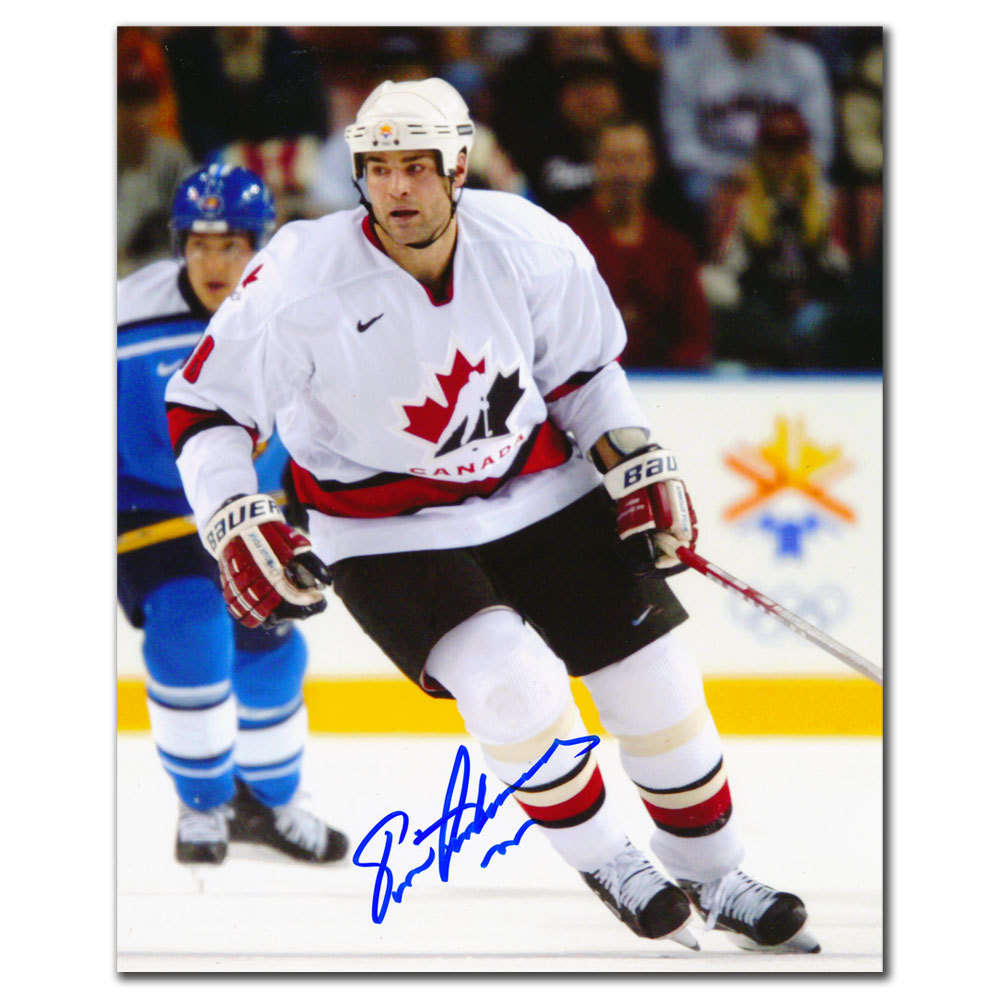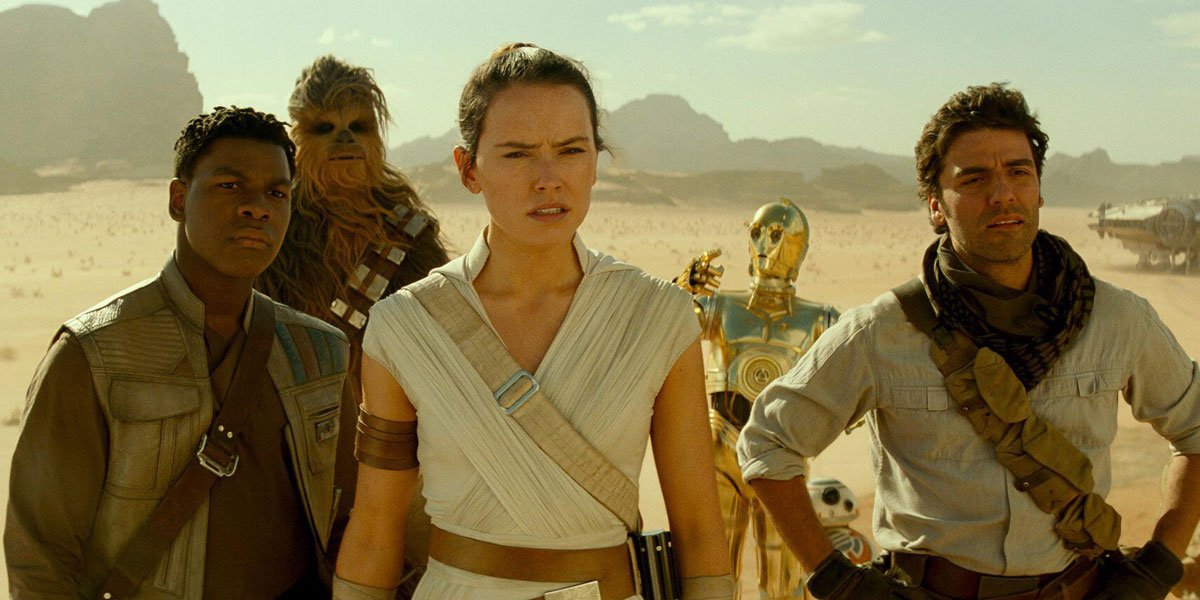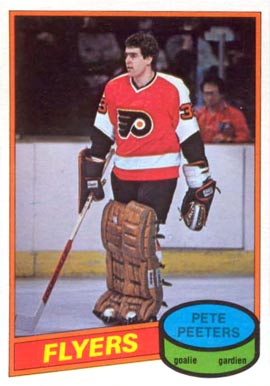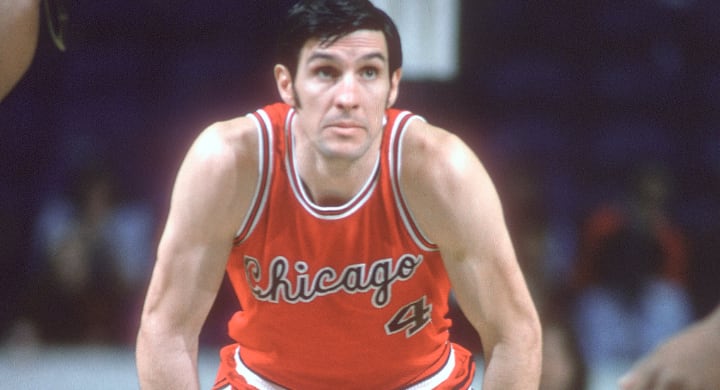The Kings had some big names on their roster. They had Wayne Gretzky, Jari Kurri and Paul Coffey -- and, if you want to count him as a "legend," Marty McSorley -- from the 1980s Edmonton Oilers dynasty. They also had Dave Taylor, the last remaining player from their 1980s "Triple Crown Line" with Marcel Dionne and Charlie Simmer. They also had Luc Robitaille, Rob Blake, Tomas Sandstrom, Alexei Zhitnik and Darryl Sydor. And a decent goalie, Kelly Hrudey.
The Leafs were no slouches, either. They had their own 1980s Edmonton refugees, Grant Fuhr, Glenn Anderson and Mike Krushelnyski. They also had Doug Gilmour, from the 1989 Calgary Flames Champions. They had Dave Andreychuk, Wendel Clark, Peter Zezel, Mike Foligno, Sylvain Lefebvre, and a good goalie in Felix Potvin (to whom the more accomplished Fuhr was backup).
What's more, the Leafs went into Game 6 with a 3-games-to-2 lead. Win Game 6, and they were in the Finals, and against their ancient rivals, no less: The Montreal Canadiens. The Habs and the Leafs were (and are) the last 2 remaining founding franchises of the NHL from 1917. (The new Ottawa Senators, named for the founding franchise that went bust in 1935, had just played their 1st season.)
Leaf fans from St. John's Newfoundland to Kenora, Ontario were pumped. This was going to be The Year. And it was far from a delusion: Their team was talented enough to deserve to get as far as they already had, 5 wins from the Cup.
There was already bad blood between the Leafs and the Kings. On November 22, 1992, Gilmour had slashed at Sandstrom with his stick, breaking Sandstrom's arm. The injury kept him out for over a month. Gilmour was suspended for 8 days.
Game 6 went to overtime, 4-4. Then, in the 1st minute of overtime, Gretzky, so often hailed as the greatest player of all time (even then), and as a class guy, did something decidedly unclassy: He high-sticked Gilmour in the face, drawing blood from his chin.
According to the rules, this should have meant a game misconduct penalty, meaning Gretzky should have been thrown out of the game; and a 5-minute major penalty (with another player sent to the penalty box in Gretzky's place), meaning the Leafs should have had a 5-minute power play in overtime. Gretzky probably also should have been suspended for a potential Game 7.
But referee Kerry Fraser did not penalize Gretzky. Apparently, 2 "unwritten rules" came into play: Don't call penalties in overtime, and don't call penalties on The Great One.
The Hero
To make matters worse, within a minute of the unpenalized infraction, 1:41 into the overtime, Gretzky scored the winning goal. In Game 7 at Maple Leaf Gardens in Toronto, the Kings won 5-4, with Gretzky scoring 3 times and assisting on another goal.
He would call that the greatest game he'd ever played -- and it was a game which, due to what he'd done in the previous game, at the very least, he shouldn't even have been in; and, at the most, shouldn't have been played, because his absence and the 5-minute power play that should have resulted should have given the Leafs the win that would have made a Game 7 unnecessary.
It's been 27 years. Leaf fans are still outraged. This was probably their best team since the breakup of their 1960s dynasty (4 Cups in 7 years).
What's more, in a 2016 article for Canadian newspaper The National Post, Fraser admitted he blew the call:
I was uncertain but thought I had it right. I’m sorry. Most people probably know the story, but they know it from the perspective of a single camera in one corner of the Great Western Forum. All I can tell you is my perspective from the ice..
As the Kings set up on the power play, I was down by the far circle, away from the puck. In my brain, this is what I was processing: Gretzky gets the puck. He shoots it, and my eyes go to the net. But Jamie Macoun blocks it. The puck rebounds between Gretzky and Doug Gilmour. When my eyes go back to Gretzky, I see a motion. Gilmour goes down.
Did Gretzky’s stick follow through and catch him? Gilmour’s bent over now. He’s got blood on his chin. And I have no idea what happened. That’s a helpless, helpless feeling.
Under the 1993 rules, if Gretzky high-sticks Gilmour and it draws blood, it’s a five-minute major. He’s gone. It was a huge call to make — a worse one to miss.
Guys from both teams were skating up to me. It didn’t smell right. I should have known when I saw Gretzky skating away. Whenever there was a dispute, Gretz was always at the forefront arguing his side of it. But this time, he kind of slinked away. That was uncharacteristic. That should have tipped me off.
But to be honest, I was attempting to roll back the play in my mind, over and over, looking for some measure of recall that would provide the evidence I needed.
Fraser consulted with his linesmen. They were unable to tell him that Gretzky had conclusively done anything wrong. As with the rule the NFL would later institute for instant replay, if it's not conclusive that the initial call was wrong, it has to stand. Fraser continued:
I had to make a decision. In referee school, they hammer it into you: Call what you see. Don’t guess. The honest to God truth is, I didn’t see it. I had to eat it. I said, “No penalty.”
The next faceoff, Gretzky stays in the game and scores to win it. He went on to have the game of his career in Game 7, and the Kings went to the Finals.
At the time, I had no idea the call would follow me for the rest of my life. There weren’t all the slow-motion cameras like they have today. It wasn’t until the next day that I saw another angle of the play on television. You could clearly see Gretzky high-sticking Gilmour. It was missed. Period.
It was agony for Leafs fans. I understand the passion, the emotion and the frustration that Leafs fans have endured. They felt it was their time. When people come up to me and ask about it now, I just try to have a conversation with them. If I had one opportunity to turn back the hands of time for a “do-over,” it would be to catch that high-stick. I’m sure I’m not alone in that department.
Would it make Leaf fans angrier if he still denied it? Maybe. But it makes them feel justified in their anger to hear Fraser admit it.The Leafs would return to the Conference Finals the next year, and again in 1999, but lost both. They still haven't made the Finals since 1967.
The Kings took a 1-0 lead over the Canadiens in the finals, and were leading in Game 2. This time, they got caught cheating: McSorley was cited for having too big a curve on his stick, and the Canadiens tied the game, and then won it in overtime, and made it 4 straight wins for the Cup. They haven't won it since, either. The Kings would finally win their 1st Cup in 2012, and a 2nd in 2014. But the 1988 Cup with Edmonton remained Gretzky's last.
Barry Melrose was the Kings' coach then. He has since built a career as an ESPN hockey pundit. He points out that the Leafs' huge fan base, encompassing so much of Canada (including some places that have NHL teams, but didn't before the expansions of the 1970s):
Of course, it gets more attention because it's Toronto... The minute I get on a plane, someone will say, "Barry, high stick, what do you think?" And I'll go, "Toronto, right?" And he'll go, "Yeah, yeah, Toronto." It's funny to figure that out. I never hear an L.A. guy ask me that question...
I'm a big believer in the harder you work, the luckier you get. And I really feel like we were the hardest-working club in that series. We deserved everything we got.
Fraser admitted he blew the call. But was he really the sole, or the biggest, reason the Leafs lost that series?
Top 5 Reasons You Can't Blame Kerry Fraser for the Toronto Maple Leafs Losing the 1993 Stanley Cup
Let me start with a couple of reasons that didn't make the cut: The Best of the Rest.
The Linesmen. They missed the call, too. Had one of them said, "Absolutely, Gretzky cut Gilmour with a high stick. It might not have been intentionally malicious, but he did it," Fraser would have had the justification he needed to send Gretzky off. He never got it until he saw the replay the next day, when it was too late.
Which brings us to...
No Instant Replay. At the time, the NHL only used it to check whether a goal had been properly scored. It wouldn't be until the 2015-16 season that coaches could challenge other plays.
Had that rule been in place in 1993, it would have been obvious, Gretzky would have been sent off, and the Leafs would have had a golden opportunity to finish the Kings off, and the next game in Toronto would have been Game 3 of the Stanley Cup Finals. (Not Game 1: The Canadiens had the better record, and thus would have had home-ice advantage.)
Now, the Top 5:
5. Kerry Fraser. He was one of the NHL's most respected officials. He had been calling games since 1973, and as a full referee since 1980. He was so respected by the International Ice Hockey Federation (IIHF) that, after this incident, he was still hired to officiate at the 1996 World Cup and the 1998 Winter Olympics. In 2005, NHL players -- the players, mind you -- voted him the League's most consistent referee.
He retired in 2010, having officiated at the NHL Winter Classic, and still holds the NHL records for most regular-season and most Playoff games officiated.
Did he make a mistake in that 1993 game? Yes, and he admitted it. Was it indicative of a pattern of favoritism toward Gretzky, or toward the Kings? Far from it.
4. The Goaltenders. In the 7 games, Felix Potvin of the Leafs allowed 22 goals, or 3.14 per game. Kelly Hrudey of the Kings allowed 23, or 3.28 per game. Sounds like the Leafs had the better goalie, right?
Not so fast. Games 2, 5, 6 and 7 were all 1-goal games, and the Leafs only won 1 of the 4. And when the Leafs needed Potvin to help them win Game 6, and then Game 7, he allowed 5 goals each time.
3. No Guarantee. Remember that "golden opportunity" I mentioned? Sometimes, when opportunity knocks, the door isn't fully opened. Suppose Gretzky had been sent off, and the Leafs had gotten a 5-minute power play. Does that mean they would have gotten the goal they needed to win the game? Not necessarily. Paul Coffey was a Hall of Fame defenseman. So was Rob Blake. Darryl Sydor probably should be in the Hall.
And the Kings could have won the game anyway. After all, they had other good attacking players besides Gretzky. And they were at home.
Of course, home-ice advantage is no guarantee, either. Which brings us to...
2. There Was a Game 7. In Toronto. The Leafs had home-ice advantage, in front of their fans, who were out for blood. There was no way they should have lost that game. But they did. They fell behind 3-0, and tied it 3-3, before losing 5-4.
They became the hockey equivalent of the 1985 St. Louis Cardinals: Instead of saying, "The hell with what happened in Game 6, let's beat these guys in Game 7," they let the mistake stick in their heads, and fell totally flat. And unlike the '85 Cards, they had the home comforts and home crowd behind them. (The NHL and the NBA go 2-2-1-1-1, while MLB goes 2-3-2, so if a World Series or an LCS goes the full 7, the same team hosts Games 6 and 7.)
If you blow Game 7 on home ice, you're (Atrocious Pun Alert) on thin ice to claim you got screwed out of a deserved victory in that round.
1. The Kings Were Better. They won Games 2 and 7 in Toronto. And they were 1 minute and 14 seconds away from going to home ice up 2-0 in the Stanley Cup Finals, before McSorley got caught cheating. True, it's possible he was cheating the whole way, and maybe other Kings were as well. But we don't know that.
We do know that the Kings had more talent -- and still might have even without Gretzky. If they had won Game 6 without him, they might have won Game 7 without him, too.
VERDICT: Not Guilty. Fraser pleaded guilty to making a mistake. But he certainly didn't singlehandedly cost the Leafs the series.

